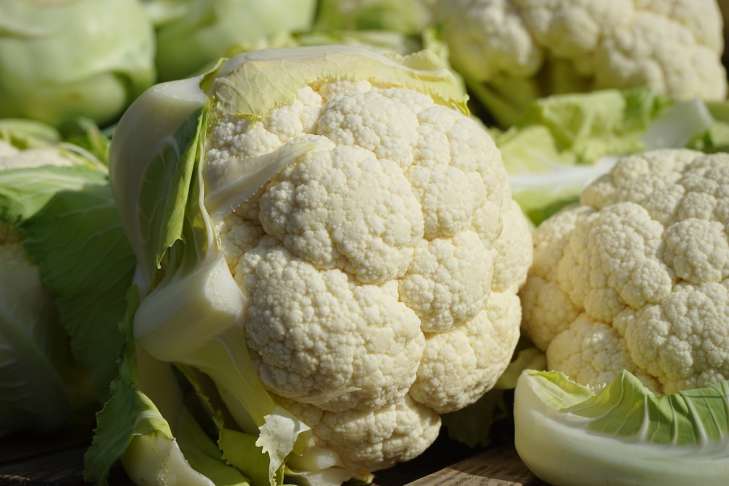Cauliflower strengthens the immune system and contains many vitamins and microelements: magnesium, potassium, iron, calcium.
Folic acid in its composition is beneficial for the nervous system.
Who benefits from eating cauliflower
Due to the fact that cauliflower contains less coarse fiber than white cabbage, it is better suited for feeding people with diseases of the gastrointestinal tract, as well as for baby food, as it is easily digested and absorbed.

Stimulates the immune system.
Cauliflower strengthens the immune system and contains many vitamins and microelements: magnesium, potassium, iron, calcium.
Folic acid in its composition is beneficial for the nervous system. 100 g of this product contains 100% of the daily value of vitamin C.
Which is better, broccoli or cauliflower
Cauliflower is lower in calories but also contains a little more sugar.
Cauliflower is better suited to low-calorie, low-fat, and low-carb diets; however, broccoli is richer in many essential vitamins and minerals.
Both cruciferous vegetables are suitable for a low glycemic index diet.
What is the best way to eat cauliflower
Cauliflower is suitable for preparing many different dishes, including raw ones.
In raw form. The inflorescences are eaten by dipping them in sauces (dipping sauces).
For a less traditional option, try a delicious vegetarian tabbouleh made from raw cauliflower (the florets are grated like Parmesan cheese).
How long should you cook cauliflower
Place cabbage florets in boiling water.
If desired, the liquid can be salted to taste.
Cook the cabbage over medium heat for 10–15 minutes. The longer it cooks, the softer it will become.













